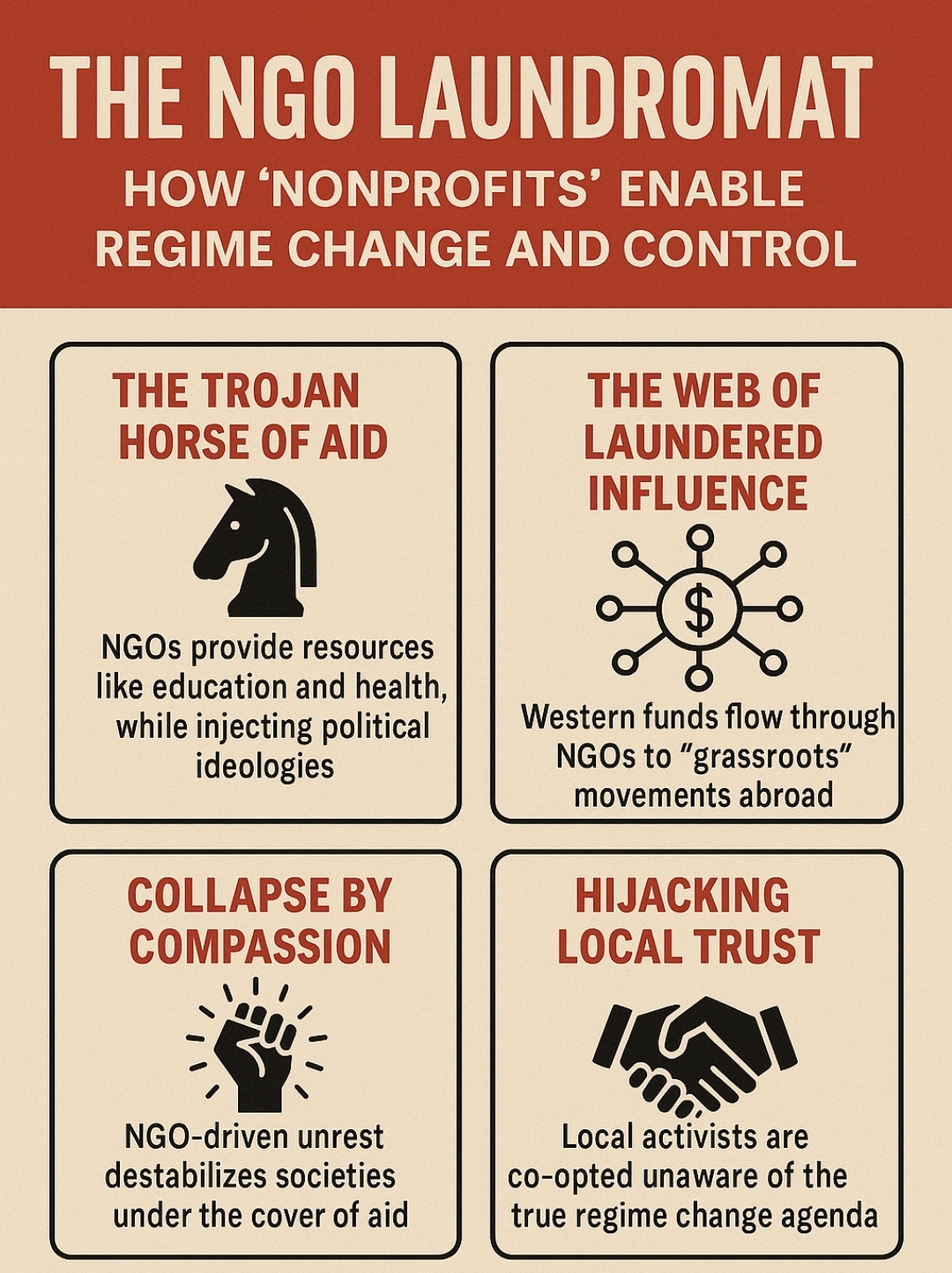Introduction:
While most citizens see NGOs (Non-Governmental Organizations) as charitable and humanitarian, many serve as veiled instruments of foreign policy and economic warfare. Under the guise of democracy, health, or development, NGOs can be used to infiltrate societies, steer unrest, and destabilize sovereign nations—all without firing a shot.
The Trojan Horse of Aid
NGOs gain trust by meeting basic needs—education, food, women’s rights, health services. But alongside these services, they often inject political ideologies, train activists, influence media, and fund opposition movements.
- Example: The Open Society Foundations, funded by George Soros, has supported media outlets and activist organizations in dozens of countries, including those that later experienced mass protests or leadership changes.
- Catchphrase: “Give them bread… then give them a blueprint.”
The Web of Laundered Influence
Billions of dollars flow from Western governments and private foundations through NGOs to “grassroots” movements abroad. The money is often untraceable, distributed through nested layers of subcontractors and shell organizations.
- USAID and NED (National Endowment for Democracy) frequently fund groups that then fund other groups, shielding the original financier from scrutiny.
- Funds enter nations under development labels but are rerouted to support protests, election manipulation, or digital warfare.
Collapse by Compassion
Unlike direct military action, NGO-driven influence operates silently. It destabilizes societies from within under the moral cover of compassion. Once unrest begins, Western media frames it as organic and inevitable—never engineered.
- Case Study: Ukraine (2014) — NGOs funded anti-Yanukovych groups for years. When the Euromaidan protests began, these groups already had media support, logistics, and foreign consultants ready to steer the uprising.
- Pattern: A humanitarian cause becomes a political weapon.
Hijacking Local Trust
Local activists are often unaware that they’re being used. Funding and training are presented as genuine support. But the real agenda is regime change or economic control.
- Scripting the narrative: NGOs supply talking points and frameworks that subtly shift movements toward pro-globalist or neoliberal policies.
- “Community empowerment” becomes “compliant restructuring.”
Financial Colonialism Through Philanthropy
The NGO-industrial complex mimics colonial control—installing ideologies, rewriting laws, and hijacking institutions while appearing benevolent.
- Control is achieved through:
- Election engineering
- Curriculum rewrites
- Legal activism and court influence
- Economic reshaping (ESG, DEI compliance)
- All under the banner of “progress.”
Conclusion:
NGOs may wear the face of charity, but many operate as hidden agents of power. Their ability to hijack local movements and destabilize nations through “soft power” is a signature tactic in modern color revolutions. What appears as empowerment often ends in dependency—political, economic, and cultural.






